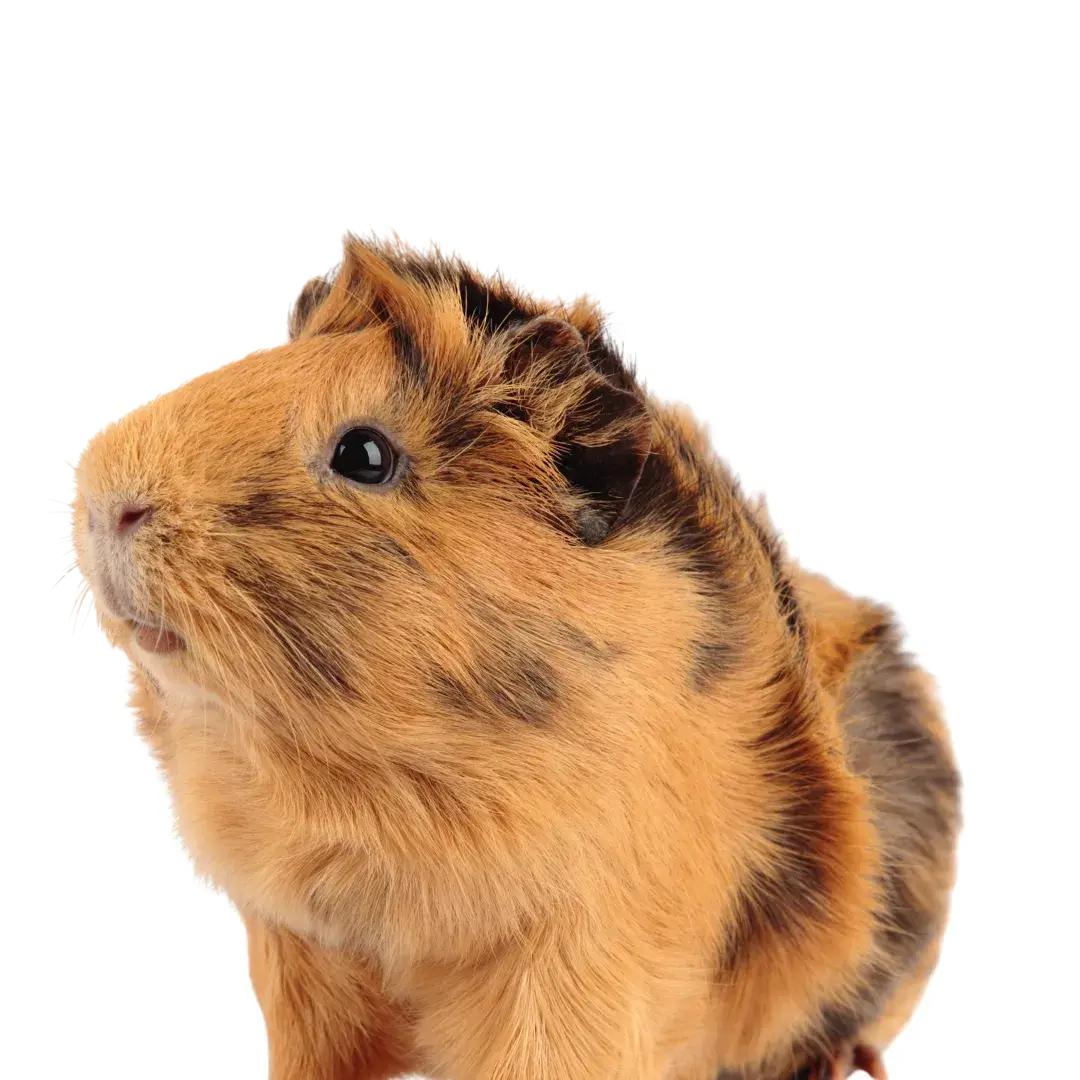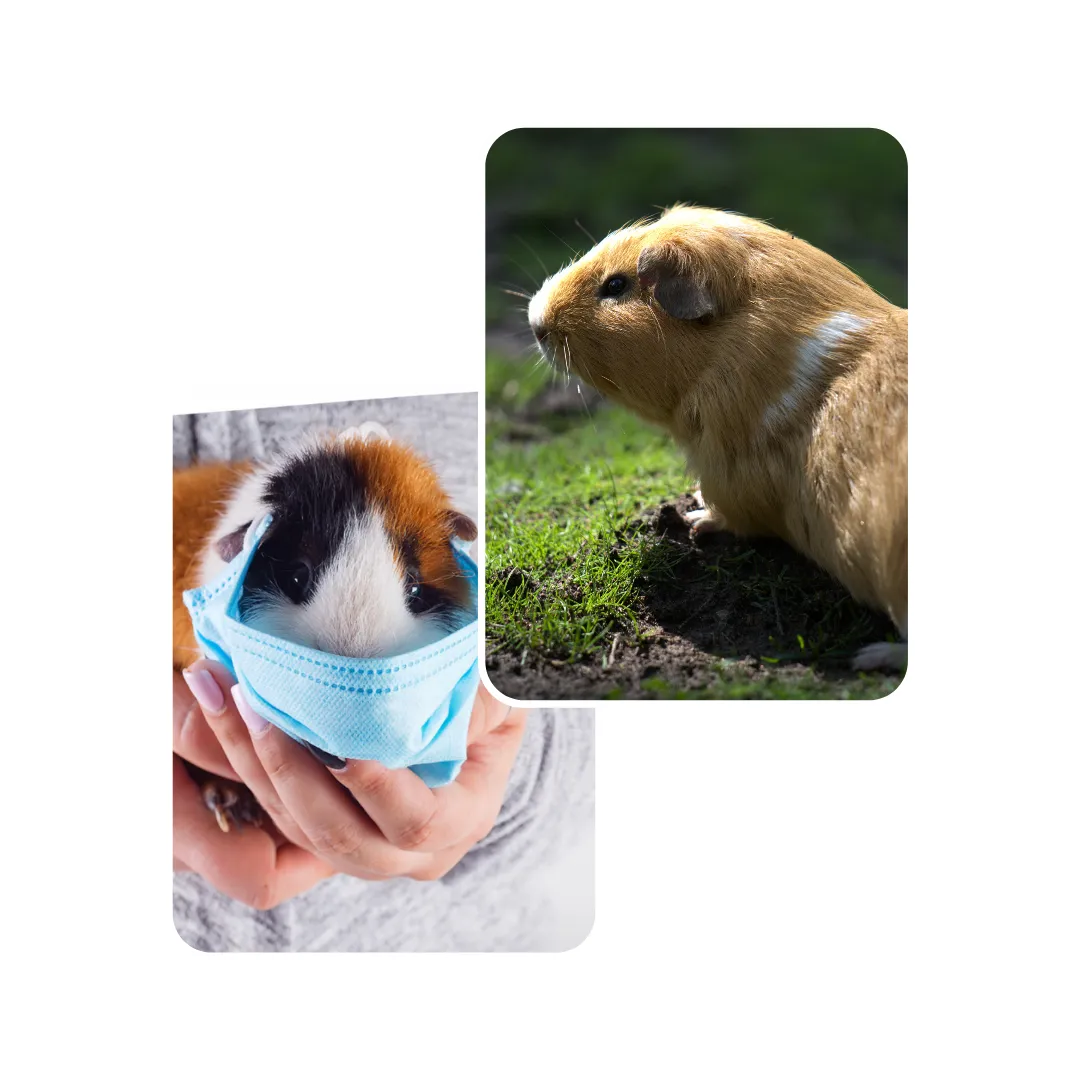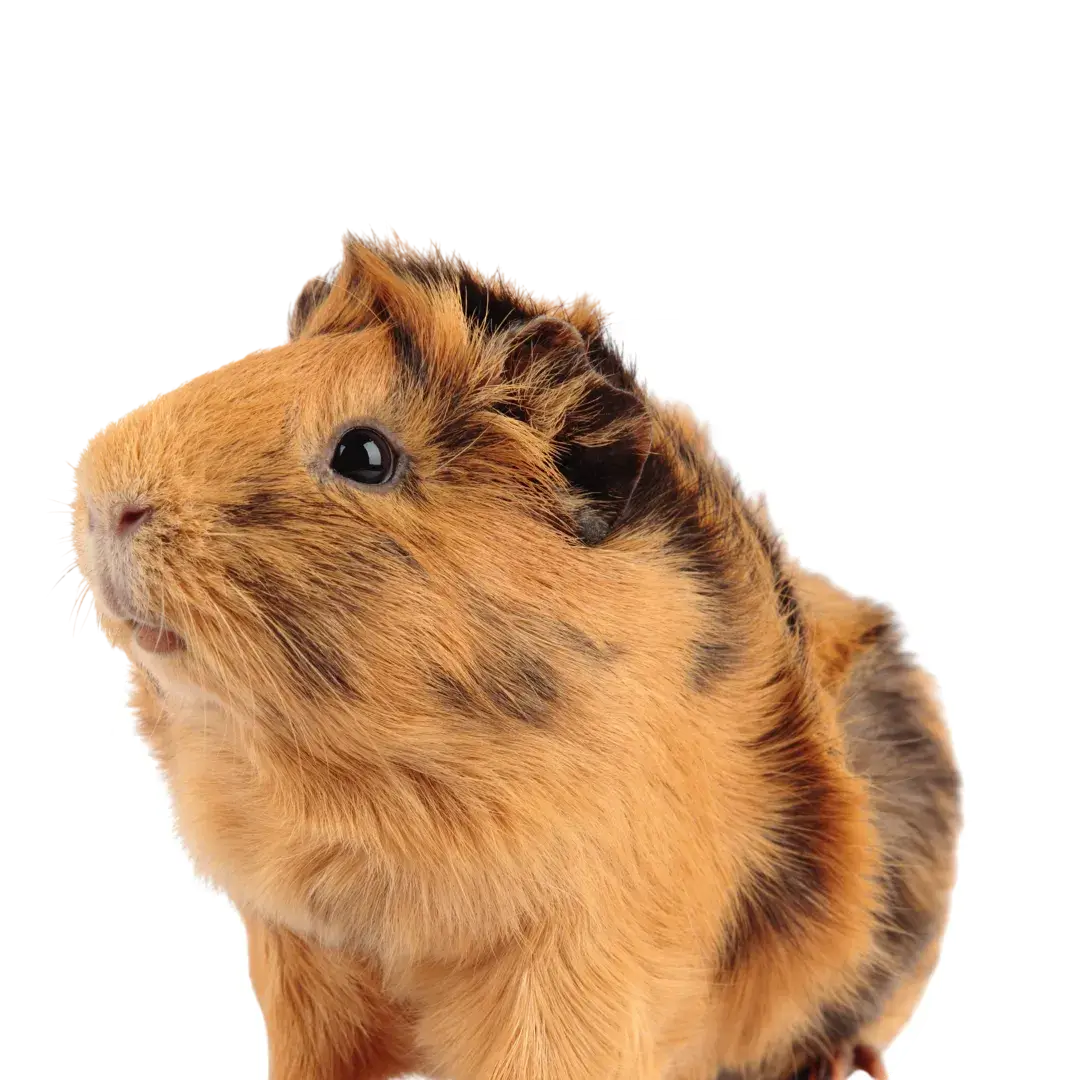
Guinea pigs can develop respiratory illness from bacteria such as Bordetella or Streptococcus, both highly contagious. Dusty bedding, poor ventilation or drafts also weaken their lungs. Stress, overcrowding, and vitamin C deficiency further lower immunity, making them more vulnerable. Once infection starts, it can spread fast to other guinea pigs in the same cage.

Wheezing, clicking or rattling sounds while breathing mean the lungs are struggling.
Respiratory infections often spread to the eyes, causing conjunctivitis like symptoms.
Fur may appear puffed up as the guinea pig tries to conserve body heat while feeling unwell.
Unfortunately, untreated pneumonia in guinea pigs can lead to sudden death within a short time.
A very serious symptom. Guinea pigs normally only breathe through their nose breathing through the mouth signals an emergency.
Sick guinea pigs may refuse to eat because breathing is difficult, leading to rapid weight loss.
In severe infections, bacteria can spread to the inner ear, causing head tilting and poor balance.
Most respiratory issues are caused by bacteria like Bordetella or Streptococcus, but poor living conditions (dusty bedding, dirty cages, or drafts) also play a huge role.
Sneezing, nasal discharge, watery eyes and wheezing are common. If your guinea pig stops eating or breathes through its mouth, that’s an emergency.
Very quickly. What looks like a “simple cold” can turn into pneumonia in just a day or two. That’s why you should never wait to see a vet.
Keep cages clean, avoid dusty bedding, ensure good ventilation and provide enough vitamin C in their diet. Stress free housing also makes a big difference.
Treatment often includes antibiotics, oxygen therapy, fluids and hand-feeding. Hospitalization may be required for severe cases.
Click the Appointment button on our website, call us or walk in directly to our vet, we will arrange a fast consultation.
Your pet deserves expert care – Subscribe now for trusted tips and updates from our pet experts.
